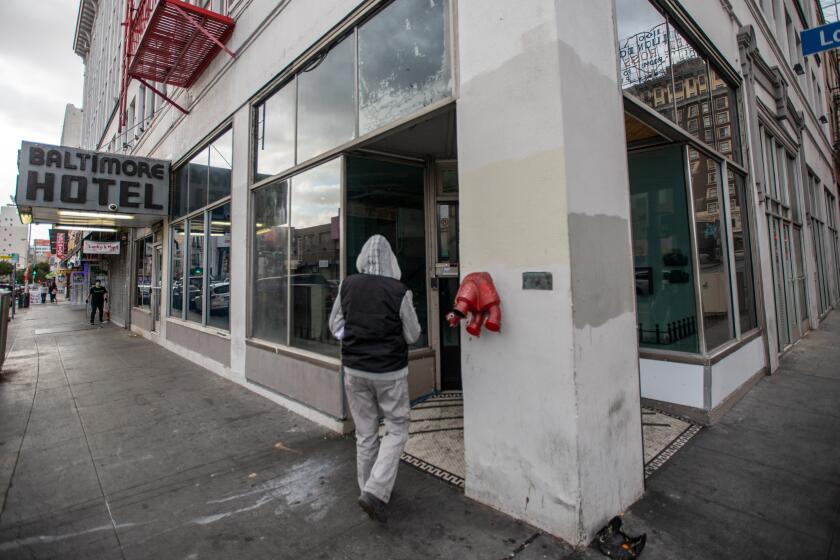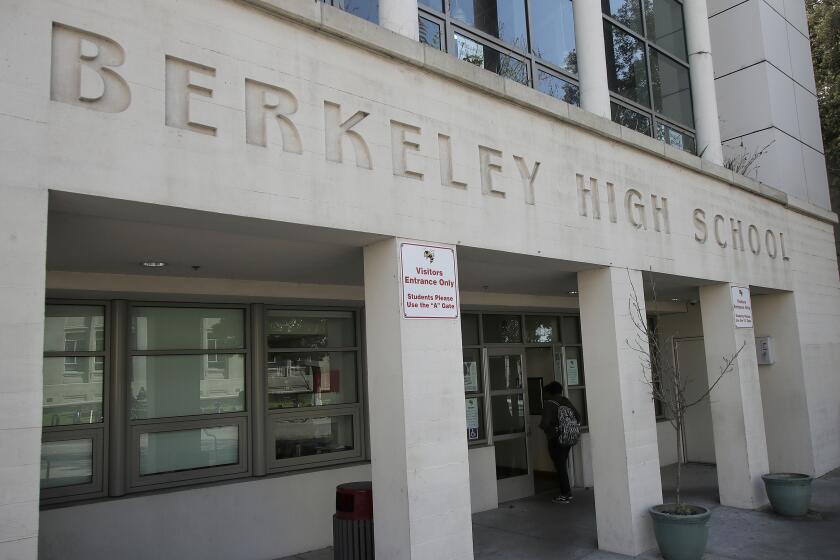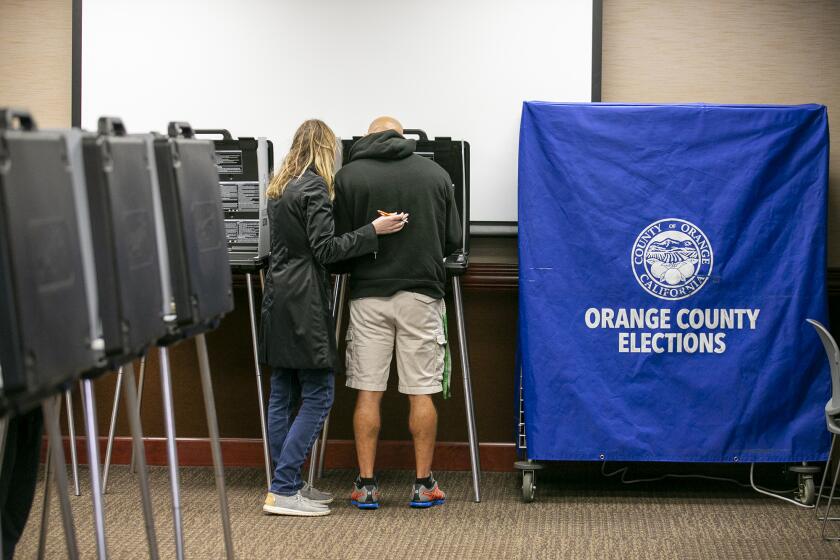Mervin Field questions California
No one has kept a finger on the pulse of California longer than Mervin D. Field. By his estimate, the San Francisco-based Field Research Corp. and its Field Poll have conducted about 10,000 surveys over the last 60-plus years, assaying the opinions and attitudes of as many as 750,000 Californians. (That’s more than the population of most cities.) Now semi-retired, the 88-year-old Field recently spoke with Times staff writer Mark Z. Barabak. The interview was condensed and edited for clarity and space.
--
You’ve been a Californian since you arrived here just after World War II. What was it like then?
There was a sense of ebullience. People could get jobs. Houses were being built. Schools were being built. It was dynamic.
--
And that native optimism lasted quite a while.
The demarcation line was 1978, when Proposition 13 came. It just crippled schools, police. The municipalities couldn’t depend on taxes. Instead of manufacturing and job creation, they had to favor strip malls and malls. Anything that would generate sales tax.
--
You’re not a fan of term limits.
My maybe naive idea is that if you get in government and get elected and choose public service, it’s like any other activity: You need to be in it and make mistakes, learn from what you’re doing. You take a violinist; he has to play the violin a long time before he becomes consummate. Under term limits, as soon as someone gets the hang of it and gets some credit toward statesmanship, they’re out.
--
And how, in your estimation, have term limits contributed to the mess we’re in?
There are no real leaders.
--
People talk of a Golden Era of politics in California, the days of Earl Warren and Pat Brown and, more recently, leaders like Pete Wilson and Willie Brown, who could get a deal done. Is that just putting a nostalgic gloss on the past?
When I came to California, I had heard of Earl Warren. I had sort of a glorified view of him. I went to see him at the San Francisco Press Club. I was a little taken aback. I said to myself, “He’s just another politician.”
--
But he got things done.
There was a tide of public support. They wanted to get things done. They needed to get things done. People were ready to tax themselves. Things were growing, and there was really no sacrifice.
--
So you’re suggesting it was easier to govern back then?
There’s the story of Robespierre running ahead of the crowd in Paris, and they asked him, “Where are you going?” He says, “I’m the leader, and I’ve got to get ahead of my people.” I don’t mean to demean any of them. Pat Brown got things done. Jesse Unruh got things done. Willie Brown and Ronald Reagan got things done. They had the wind at their backs. Times were good. And there was so much growth, people knew things needed to get done.
--
They didn’t please all the people all the time.
You always had some resentment toward government, but now it’s increased and it’s ingrained.
--
Californians seem to want it all: top-notch government services and low taxes.
That attitude has been here since time immemorial.
--
So what was the difference between the so-called Golden Era and now?
The population was much lower. The land was more open. Times were better. And there isn’t the cohesion that you had at that time. It’s not that minorities were accepted and not discriminated against. But
--
People say California has simply become ungovernable.
You could say that. You have an Assembly person from the Central Valley versus Northern California, or the L.A. urban area. Just an entirely different view of what’s going on. It is big. It is unwieldy.
--
So what’s the solution?
First, I’d repeal Proposition 13. I’m for progressive taxation. I think there should be taxation based on means. So if someone has a $6-million house and someone has a $250,000 house, I think the person in that $6-million house should be paying more taxes than the one in the $250,000 house, and it should go for good government.
--
You also would repeal term limits. And you’re a fan of Proposition 11, which takes reapportionment away from self-interested politicians and places the process in the hands of an independent commission.
All these things, term limits and reapportionment and the gerrymandering that goes on, are reducing the political discourse. If there were more relevant discourse, people might pay closer attention. If you had an aroused, involved, attending public, things would be different.
--
Is there the political will do to do the things you think need doing?
No. Proposition 13 has become like a third rail with the public. What would have to happen is having someone on the state level emerge like Obama did on the national level.
--
Or the way Gov. Schwarzenegger did during the recall?
He got swept up, or overwhelmed, by the mechanics of being in Sacramento. When he came in, the books were open. He should have known better than to repeal the auto tax, which would have produced $4 billion, $5 billion a year.
--
So, to paraphrase Dickens, are these the best of times or the worst of times? Or is it somewhere in between?
I see it as the worst of times. Thinking back, I can’t see any other time when the challenges to California, the way things are going now, have been so severe.
--
But at least we can still brag about being from sunny, hip, cutting-edge California, can’t we?
It used to be I’d go places and people would say, “Where are you from?” I’d say, “California” and they’d be, “Ah, gee, aren’t you lucky.” Now it’s ridicule.
--
More to Read
Start your day right
Sign up for Essential California for news, features and recommendations from the L.A. Times and beyond in your inbox six days a week.
You may occasionally receive promotional content from the Los Angeles Times.







